 ECAScreening6: A pair of Portuguese-language films quietly examine the standoff between old Europe and modern multiculturalism. Tabu was "Paradise Lost"; set in a forlorn, present-day Lisbon in which a middle-aged Christian, Pilar, takes a neighbourly interest in the affairs of Aurora, an elderly gambling addict who indulges in mild racism towards her Cape Verdean housekeeper, Santa. When Aurora dies, and Pilar tracks down the woman's former lover, the film's buttoned-up realism blossoms into "Paradise", a stylised account of the couple's days in Portuguese Africa. The affair is conducted against a stylised backdrop that is like a cinematic stampede of past-colonial fantasies and attitudes, from FW Murnau to Tarzan escapades, to the quirk-filtered nostalgia of Wes Anderson.
ECAScreening6: A pair of Portuguese-language films quietly examine the standoff between old Europe and modern multiculturalism. Tabu was "Paradise Lost"; set in a forlorn, present-day Lisbon in which a middle-aged Christian, Pilar, takes a neighbourly interest in the affairs of Aurora, an elderly gambling addict who indulges in mild racism towards her Cape Verdean housekeeper, Santa. When Aurora dies, and Pilar tracks down the woman's former lover, the film's buttoned-up realism blossoms into "Paradise", a stylised account of the couple's days in Portuguese Africa. The affair is conducted against a stylised backdrop that is like a cinematic stampede of past-colonial fantasies and attitudes, from FW Murnau to Tarzan escapades, to the quirk-filtered nostalgia of Wes Anderson.
16.06.2013 | by Phil Hoad
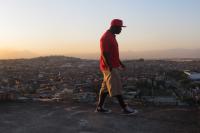 The booming economic juggernaut in Brazil has transformed lives. It has also acted as a beacon attracting migrants from all over the world, including the former Portuguese colony of Angola. Expecting to find a vast multicultural embrace, Angolan immigrant Badharo instead finds barriers and even racism in Rio. So he turns to music as a way to express his disappointment, pain and outrage.
Set against the tragic death of a young Angolan student, we experience the frustrations Badharo and his family face as their Brazilian dreams encounter a very different reality.
The booming economic juggernaut in Brazil has transformed lives. It has also acted as a beacon attracting migrants from all over the world, including the former Portuguese colony of Angola. Expecting to find a vast multicultural embrace, Angolan immigrant Badharo instead finds barriers and even racism in Rio. So he turns to music as a way to express his disappointment, pain and outrage.
Set against the tragic death of a young Angolan student, we experience the frustrations Badharo and his family face as their Brazilian dreams encounter a very different reality.
06.02.2013 | by Juliana Borges and Fernanda Polacow
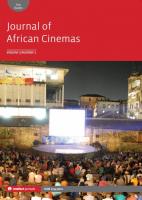 Substantial research has been dedicated to post-colonial productions in African Studies, Postcolonial Studies and Film Studies. Francophone and Anglophone film productions have been extensively assessed in academic writings; however there is a lack of critical research on the subject of Lusophone cinemas and co-productions. This special issue of Journal of African Cinemas intends to address this shortfall in academic work by presenting a critical and informative body of research on the subject.
Substantial research has been dedicated to post-colonial productions in African Studies, Postcolonial Studies and Film Studies. Francophone and Anglophone film productions have been extensively assessed in academic writings; however there is a lack of critical research on the subject of Lusophone cinemas and co-productions. This special issue of Journal of African Cinemas intends to address this shortfall in academic work by presenting a critical and informative body of research on the subject.
24.08.2012 | by Alessandra Meleiro
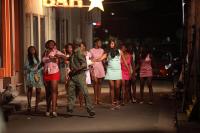 This spurs the women to defiantly band together to undertake a real revolutionary action and assert their independence from their "liberators." An evocative exposé of a little-known chapter in the contemporary history of Mozambique, Virgin Margarida is a dramatic and inspiring elegy to the insurgent spirit of women across nations, histories and cultures.
This spurs the women to defiantly band together to undertake a real revolutionary action and assert their independence from their "liberators." An evocative exposé of a little-known chapter in the contemporary history of Mozambique, Virgin Margarida is a dramatic and inspiring elegy to the insurgent spirit of women across nations, histories and cultures.
22.08.2012 | by vários
 All over Africa there is a certain revival of an industry of culture and memory, or perhaps even the cult of memory. And perhaps that's good news.
All over Africa there is a certain revival of an industry of culture and memory, or perhaps even the cult of memory. And perhaps that's good news.
15.05.2012 | by Pedro José-Marcellino aka P.J. Marcellino
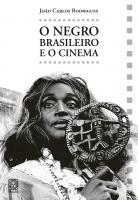 A frequent charge made about Brazilian cinema by Black intellectuals and artists is that the films do not present truly individualized characters, but rather mere archetypes and/or caricatures. The accusation is pertinent, since Brazilian cinema generally favors character-types, schematic or symbolic, Black or not.
In Black folklore in Brazil (1935), anthropologist Artur Ramos observed that orishas (African deities) “passed into Brazilian folklore and maintain close contact with the popular imagination, a magical and somewhat familiar contact, since they survive as symbols of individual complexes”. They appear as much in ancestral African religions (Candomblé), as in the Brazilian religion Umbanda, which absorbed other influences (e.g., indigenous, oriental).
A frequent charge made about Brazilian cinema by Black intellectuals and artists is that the films do not present truly individualized characters, but rather mere archetypes and/or caricatures. The accusation is pertinent, since Brazilian cinema generally favors character-types, schematic or symbolic, Black or not.
In Black folklore in Brazil (1935), anthropologist Artur Ramos observed that orishas (African deities) “passed into Brazilian folklore and maintain close contact with the popular imagination, a magical and somewhat familiar contact, since they survive as symbols of individual complexes”. They appear as much in ancestral African religions (Candomblé), as in the Brazilian religion Umbanda, which absorbed other influences (e.g., indigenous, oriental).
24.03.2012 | by João Carlos Rodrigues
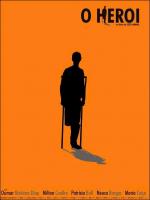 This article uses a reading of Zézé Gamboa's award-winning 2004 feature as a basis for an exploration of post-conflict Angolan screen culture and of its impact both at home and internationally. It considers how O Herói‟s depiction of a war-torn nation, and of the impediments to its reconstruction, negotiates between a socially-engaged film-making practice, informed by local tradition and the tenets of „Third Cinema‟, and the demands of a globalised cinema market. The film achieves this compromise by deploying allegorical and symbolic tropes, familiar from the literature, cinema, and political discourse of the era of Angolan liberation (notably, the concept of a socialist „new man‟), to complicate a superficially optimistic story of post-conflict rehabilitation, and to insinuate a critique of the authoritarian practices and neo-liberal policies of the MPLA government.
This article uses a reading of Zézé Gamboa's award-winning 2004 feature as a basis for an exploration of post-conflict Angolan screen culture and of its impact both at home and internationally. It considers how O Herói‟s depiction of a war-torn nation, and of the impediments to its reconstruction, negotiates between a socially-engaged film-making practice, informed by local tradition and the tenets of „Third Cinema‟, and the demands of a globalised cinema market. The film achieves this compromise by deploying allegorical and symbolic tropes, familiar from the literature, cinema, and political discourse of the era of Angolan liberation (notably, the concept of a socialist „new man‟), to complicate a superficially optimistic story of post-conflict rehabilitation, and to insinuate a critique of the authoritarian practices and neo-liberal policies of the MPLA government.
19.12.2011 | by Mark Sabine
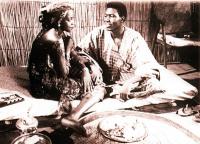 The variety of techniques and approaches to film in use in the present day impedes overarching judgments. Women’s increasing esteem and importance within the world of cinema has led to a diversity of intentions and perspectives; moreover, the character of global culture is such that the lines separating Africa from the West are no longer so clear as before.
The variety of techniques and approaches to film in use in the present day impedes overarching judgments. Women’s increasing esteem and importance within the world of cinema has led to a diversity of intentions and perspectives; moreover, the character of global culture is such that the lines separating Africa from the West are no longer so clear as before.
06.12.2011 | by Beatriz Leal Riesco
 In Ethiopia films are financed entirely by private businessmen, who anticipate profit out of film production; in a best case, individuals who want to finance films for the love of the art and as a side business with less anticipation of big profit. Yet both groups of producers want to see their production at least covering its own cost and become a sustainable sector.
In Ethiopia films are financed entirely by private businessmen, who anticipate profit out of film production; in a best case, individuals who want to finance films for the love of the art and as a side business with less anticipation of big profit. Yet both groups of producers want to see their production at least covering its own cost and become a sustainable sector.
29.11.2011 | by Aron Yeshitila
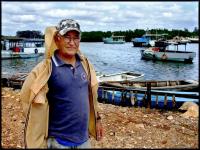 Carlos is the character I am most worried about. I’d only spent a few hours with him before, and I am not sure what he will reveal about his time in Angola and how that will fit into the film. He is a fisherman, his skin deeply tanned from a lifetime at sea.
Carlos is the character I am most worried about. I’d only spent a few hours with him before, and I am not sure what he will reveal about his time in Angola and how that will fit into the film. He is a fisherman, his skin deeply tanned from a lifetime at sea.
01.10.2011 | by Dulce Fernandes
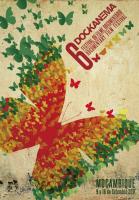 This year, as we embark on the sixth edition of Dockanema, my purpose is also one of remembrance, so that we do not forget the importance of documentaries in our society, and above all in our collective memory. To reaffirm this purpose once more, there could be no better choice for the opening of the 6th Dockanema than the Patrício Guzman film Nostalgia da Luz, in an edition intended to pay homage to the master filmmaker Ruy Guerra.
This year, as we embark on the sixth edition of Dockanema, my purpose is also one of remembrance, so that we do not forget the importance of documentaries in our society, and above all in our collective memory. To reaffirm this purpose once more, there could be no better choice for the opening of the 6th Dockanema than the Patrício Guzman film Nostalgia da Luz, in an edition intended to pay homage to the master filmmaker Ruy Guerra.
07.09.2011 | by Pedro Pimenta
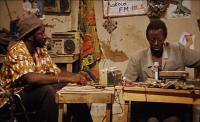 Even today, an analysis of the complex role of music in film is often forgotten by critics, many of whom remain prostrate before the dictatorship of the image. Yet as a manifestation of culture, music has a privileged position with respect to the study of representations of identity and ideology; moreover, in its subversive and dialogic aspects, it can reveal significant directorial decisions related to dynamics of power and exclusion.
Even today, an analysis of the complex role of music in film is often forgotten by critics, many of whom remain prostrate before the dictatorship of the image. Yet as a manifestation of culture, music has a privileged position with respect to the study of representations of identity and ideology; moreover, in its subversive and dialogic aspects, it can reveal significant directorial decisions related to dynamics of power and exclusion.
16.05.2011 | by Beatriz Leal Riesco
 The writer of '20 Navios' speaks to us of the chronicle and its melancholy, opening with “This (rear?) Window”, where he probes his identitary affiliations - the aforementioned triangle-: “From this window before me, when night falls, and Lisbon turns to dust beneath the anonymous city lights, I may imagine myself in Maputo, Havana, or Rio, or whatever other of my stomping grounds, but I know now that I can never fool myself, because I am inevitably alone, with my afro-latin schizophrenia.
The writer of '20 Navios' speaks to us of the chronicle and its melancholy, opening with “This (rear?) Window”, where he probes his identitary affiliations - the aforementioned triangle-: “From this window before me, when night falls, and Lisbon turns to dust beneath the anonymous city lights, I may imagine myself in Maputo, Havana, or Rio, or whatever other of my stomping grounds, but I know now that I can never fool myself, because I am inevitably alone, with my afro-latin schizophrenia.
07.05.2011 | by Luís Carlos Patraquim
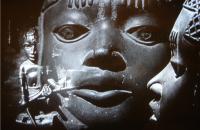 Documentary cinema in Africa more or less follows the same trajectory as African Literature. The methodologies and forms of expression are certainly different but the discourse on Africa remains the same, evolving with the continent’s history. In the 1920s, colonial reportage and ethnographic films were already a success. Africa and Africans were filmed subjects.
Documentary cinema in Africa more or less follows the same trajectory as African Literature. The methodologies and forms of expression are certainly different but the discourse on Africa remains the same, evolving with the continent’s history. In the 1920s, colonial reportage and ethnographic films were already a success. Africa and Africans were filmed subjects.
08.04.2011 | by Rufin Mbou Mikima
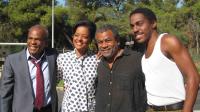 Our interview takes place in Ipanema, Rio de Janeiro, where Zézé Gamboa and a few members of his team are resting for a few days after the intense shoot for his film “Grande Kilapy”, which tells the story of Joãozinho das Garotas, an Angolan during colonial times who engineered a sting with the colony’s finances. There’s just a week in Luanda left for the film to be ready for editing, following the takes in Portugal and Paraíba in Brazil, so this is the right time to weigh up the experience and bring to public attention some aspects of the work done by someone who is considered to be “the most consistent” of Angolan directors.
Our interview takes place in Ipanema, Rio de Janeiro, where Zézé Gamboa and a few members of his team are resting for a few days after the intense shoot for his film “Grande Kilapy”, which tells the story of Joãozinho das Garotas, an Angolan during colonial times who engineered a sting with the colony’s finances. There’s just a week in Luanda left for the film to be ready for editing, following the takes in Portugal and Paraíba in Brazil, so this is the right time to weigh up the experience and bring to public attention some aspects of the work done by someone who is considered to be “the most consistent” of Angolan directors.
10.01.2011 | by Marta Lança
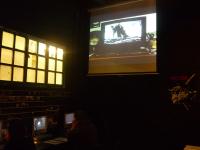 Starting from original political determinations of Mozambican propaganda films, the Off-screen method induces or just identifies the unfolding of relational transformations that are raised basically from putting perception itself at play. It suggest that archive genealogy or any other documentary organization approach combines a relational process with a sizeable shift to the realm of the (political) present.
Starting from original political determinations of Mozambican propaganda films, the Off-screen method induces or just identifies the unfolding of relational transformations that are raised basically from putting perception itself at play. It suggest that archive genealogy or any other documentary organization approach combines a relational process with a sizeable shift to the realm of the (political) present.
25.11.2010 | by Catarina Simão
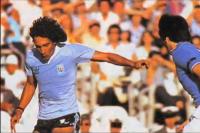 Since its launch, the DOCKANEMA Festival has aimed to offer the different audiences in Maputo the twin opportunities of becoming acquainted with the best that is being produced in the world of documentary films and of taking a break from the run-of-the mill audiovisual diet that is available for the rest of the year.
Since its launch, the DOCKANEMA Festival has aimed to offer the different audiences in Maputo the twin opportunities of becoming acquainted with the best that is being produced in the world of documentary films and of taking a break from the run-of-the mill audiovisual diet that is available for the rest of the year.
20.09.2010 | by Pedro Pimenta
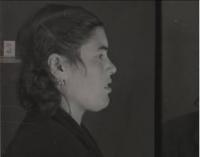 Among the artistic and other disciplines that pursue the representation of reality, the documentary film is most certainly one of those that raise the most questions. Traditionally favouring a fragmented glimpse of the world around us, and of what arises from events, documentary films today pose problems and challenges for us, with the added difficulty of both attempting to fit it in to some predetermined type and of interpreting its message.
Among the artistic and other disciplines that pursue the representation of reality, the documentary film is most certainly one of those that raise the most questions. Traditionally favouring a fragmented glimpse of the world around us, and of what arises from events, documentary films today pose problems and challenges for us, with the added difficulty of both attempting to fit it in to some predetermined type and of interpreting its message.
20.09.2010 | by Francisco Noa
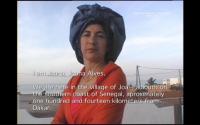 There is something transversal in Ângela Ferreira's video work, something that deals, fundamentally, with a kind of non-correlation between the concrete identity of the filmed places and its investment in open juxtapositions over a constellation of spacial axes and discontinuous temporalities. If territorial duality, inseparable from a certain biographical trajectory, from frequent journeys between Africa - Mozambique and South Africa - and Europe, undoubtedly marks Ângela Ferreira's work, it is precisely this territorial duality that has written history in the indeterminate space of video discourse, pointing to issues of geopolitics and exposing us, simultaneously, to the work of deconstruction of iconography and the colonial and postcolonial imaginary that is being systematically developed by the artist.
There is something transversal in Ângela Ferreira's video work, something that deals, fundamentally, with a kind of non-correlation between the concrete identity of the filmed places and its investment in open juxtapositions over a constellation of spacial axes and discontinuous temporalities. If territorial duality, inseparable from a certain biographical trajectory, from frequent journeys between Africa - Mozambique and South Africa - and Europe, undoubtedly marks Ângela Ferreira's work, it is precisely this territorial duality that has written history in the indeterminate space of video discourse, pointing to issues of geopolitics and exposing us, simultaneously, to the work of deconstruction of iconography and the colonial and postcolonial imaginary that is being systematically developed by the artist.
13.09.2010 | by Raquel Schefer
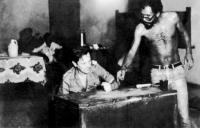 Angola is a leading oil producer in Africa and one
might have expected that some of the financial
benefits of this valuable commodity would be passed onto the country’s film industry. Veteran Angolan filmmaker Mariano Bartolomeu provides an insight into the state of the film and television
industry in this Portuguese speaking country.
Angola is a leading oil producer in Africa and one
might have expected that some of the financial
benefits of this valuable commodity would be passed onto the country’s film industry. Veteran Angolan filmmaker Mariano Bartolomeu provides an insight into the state of the film and television
industry in this Portuguese speaking country.
14.08.2010 | by Martin Chemhere
 ECAScreening6: A pair of Portuguese-language films quietly examine the standoff between old Europe and modern multiculturalism. Tabu was "Paradise Lost"; set in a forlorn, present-day Lisbon in which a middle-aged Christian, Pilar, takes a neighbourly interest in the affairs of Aurora, an elderly gambling addict who indulges in mild racism towards her Cape Verdean housekeeper, Santa. When Aurora dies, and Pilar tracks down the woman's former lover, the film's buttoned-up realism blossoms into "Paradise", a stylised account of the couple's days in Portuguese Africa. The affair is conducted against a stylised backdrop that is like a cinematic stampede of past-colonial fantasies and attitudes, from FW Murnau to Tarzan escapades, to the quirk-filtered nostalgia of Wes Anderson.
ECAScreening6: A pair of Portuguese-language films quietly examine the standoff between old Europe and modern multiculturalism. Tabu was "Paradise Lost"; set in a forlorn, present-day Lisbon in which a middle-aged Christian, Pilar, takes a neighbourly interest in the affairs of Aurora, an elderly gambling addict who indulges in mild racism towards her Cape Verdean housekeeper, Santa. When Aurora dies, and Pilar tracks down the woman's former lover, the film's buttoned-up realism blossoms into "Paradise", a stylised account of the couple's days in Portuguese Africa. The affair is conducted against a stylised backdrop that is like a cinematic stampede of past-colonial fantasies and attitudes, from FW Murnau to Tarzan escapades, to the quirk-filtered nostalgia of Wes Anderson.  The booming economic juggernaut in Brazil has transformed lives. It has also acted as a beacon attracting migrants from all over the world, including the former Portuguese colony of Angola. Expecting to find a vast multicultural embrace, Angolan immigrant Badharo instead finds barriers and even racism in Rio. So he turns to music as a way to express his disappointment, pain and outrage.
Set against the tragic death of a young Angolan student, we experience the frustrations Badharo and his family face as their Brazilian dreams encounter a very different reality.
The booming economic juggernaut in Brazil has transformed lives. It has also acted as a beacon attracting migrants from all over the world, including the former Portuguese colony of Angola. Expecting to find a vast multicultural embrace, Angolan immigrant Badharo instead finds barriers and even racism in Rio. So he turns to music as a way to express his disappointment, pain and outrage.
Set against the tragic death of a young Angolan student, we experience the frustrations Badharo and his family face as their Brazilian dreams encounter a very different reality.  Substantial research has been dedicated to post-colonial productions in African Studies, Postcolonial Studies and Film Studies. Francophone and Anglophone film productions have been extensively assessed in academic writings; however there is a lack of critical research on the subject of Lusophone cinemas and co-productions. This special issue of Journal of African Cinemas intends to address this shortfall in academic work by presenting a critical and informative body of research on the subject.
Substantial research has been dedicated to post-colonial productions in African Studies, Postcolonial Studies and Film Studies. Francophone and Anglophone film productions have been extensively assessed in academic writings; however there is a lack of critical research on the subject of Lusophone cinemas and co-productions. This special issue of Journal of African Cinemas intends to address this shortfall in academic work by presenting a critical and informative body of research on the subject.  This spurs the women to defiantly band together to undertake a real revolutionary action and assert their independence from their "liberators." An evocative exposé of a little-known chapter in the contemporary history of Mozambique, Virgin Margarida is a dramatic and inspiring elegy to the insurgent spirit of women across nations, histories and cultures.
This spurs the women to defiantly band together to undertake a real revolutionary action and assert their independence from their "liberators." An evocative exposé of a little-known chapter in the contemporary history of Mozambique, Virgin Margarida is a dramatic and inspiring elegy to the insurgent spirit of women across nations, histories and cultures.  All over Africa there is a certain revival of an industry of culture and memory, or perhaps even the cult of memory. And perhaps that's good news.
All over Africa there is a certain revival of an industry of culture and memory, or perhaps even the cult of memory. And perhaps that's good news.  A frequent charge made about Brazilian cinema by Black intellectuals and artists is that the films do not present truly individualized characters, but rather mere archetypes and/or caricatures. The accusation is pertinent, since Brazilian cinema generally favors character-types, schematic or symbolic, Black or not.
In Black folklore in Brazil (1935), anthropologist Artur Ramos observed that orishas (African deities) “passed into Brazilian folklore and maintain close contact with the popular imagination, a magical and somewhat familiar contact, since they survive as symbols of individual complexes”. They appear as much in ancestral African religions (Candomblé), as in the Brazilian religion Umbanda, which absorbed other influences (e.g., indigenous, oriental).
A frequent charge made about Brazilian cinema by Black intellectuals and artists is that the films do not present truly individualized characters, but rather mere archetypes and/or caricatures. The accusation is pertinent, since Brazilian cinema generally favors character-types, schematic or symbolic, Black or not.
In Black folklore in Brazil (1935), anthropologist Artur Ramos observed that orishas (African deities) “passed into Brazilian folklore and maintain close contact with the popular imagination, a magical and somewhat familiar contact, since they survive as symbols of individual complexes”. They appear as much in ancestral African religions (Candomblé), as in the Brazilian religion Umbanda, which absorbed other influences (e.g., indigenous, oriental).  This article uses a reading of Zézé Gamboa's award-winning 2004 feature as a basis for an exploration of post-conflict Angolan screen culture and of its impact both at home and internationally. It considers how O Herói‟s depiction of a war-torn nation, and of the impediments to its reconstruction, negotiates between a socially-engaged film-making practice, informed by local tradition and the tenets of „Third Cinema‟, and the demands of a globalised cinema market. The film achieves this compromise by deploying allegorical and symbolic tropes, familiar from the literature, cinema, and political discourse of the era of Angolan liberation (notably, the concept of a socialist „new man‟), to complicate a superficially optimistic story of post-conflict rehabilitation, and to insinuate a critique of the authoritarian practices and neo-liberal policies of the MPLA government.
This article uses a reading of Zézé Gamboa's award-winning 2004 feature as a basis for an exploration of post-conflict Angolan screen culture and of its impact both at home and internationally. It considers how O Herói‟s depiction of a war-torn nation, and of the impediments to its reconstruction, negotiates between a socially-engaged film-making practice, informed by local tradition and the tenets of „Third Cinema‟, and the demands of a globalised cinema market. The film achieves this compromise by deploying allegorical and symbolic tropes, familiar from the literature, cinema, and political discourse of the era of Angolan liberation (notably, the concept of a socialist „new man‟), to complicate a superficially optimistic story of post-conflict rehabilitation, and to insinuate a critique of the authoritarian practices and neo-liberal policies of the MPLA government.  The variety of techniques and approaches to film in use in the present day impedes overarching judgments. Women’s increasing esteem and importance within the world of cinema has led to a diversity of intentions and perspectives; moreover, the character of global culture is such that the lines separating Africa from the West are no longer so clear as before.
The variety of techniques and approaches to film in use in the present day impedes overarching judgments. Women’s increasing esteem and importance within the world of cinema has led to a diversity of intentions and perspectives; moreover, the character of global culture is such that the lines separating Africa from the West are no longer so clear as before.  In Ethiopia films are financed entirely by private businessmen, who anticipate profit out of film production; in a best case, individuals who want to finance films for the love of the art and as a side business with less anticipation of big profit. Yet both groups of producers want to see their production at least covering its own cost and become a sustainable sector.
In Ethiopia films are financed entirely by private businessmen, who anticipate profit out of film production; in a best case, individuals who want to finance films for the love of the art and as a side business with less anticipation of big profit. Yet both groups of producers want to see their production at least covering its own cost and become a sustainable sector.  Carlos is the character I am most worried about. I’d only spent a few hours with him before, and I am not sure what he will reveal about his time in Angola and how that will fit into the film. He is a fisherman, his skin deeply tanned from a lifetime at sea.
Carlos is the character I am most worried about. I’d only spent a few hours with him before, and I am not sure what he will reveal about his time in Angola and how that will fit into the film. He is a fisherman, his skin deeply tanned from a lifetime at sea.  This year, as we embark on the sixth edition of Dockanema, my purpose is also one of remembrance, so that we do not forget the importance of documentaries in our society, and above all in our collective memory. To reaffirm this purpose once more, there could be no better choice for the opening of the 6th Dockanema than the Patrício Guzman film Nostalgia da Luz, in an edition intended to pay homage to the master filmmaker Ruy Guerra.
This year, as we embark on the sixth edition of Dockanema, my purpose is also one of remembrance, so that we do not forget the importance of documentaries in our society, and above all in our collective memory. To reaffirm this purpose once more, there could be no better choice for the opening of the 6th Dockanema than the Patrício Guzman film Nostalgia da Luz, in an edition intended to pay homage to the master filmmaker Ruy Guerra.
 Even today, an analysis of the complex role of music in film is often forgotten by critics, many of whom remain prostrate before the dictatorship of the image. Yet as a manifestation of culture, music has a privileged position with respect to the study of representations of identity and ideology; moreover, in its subversive and dialogic aspects, it can reveal significant directorial decisions related to dynamics of power and exclusion.
Even today, an analysis of the complex role of music in film is often forgotten by critics, many of whom remain prostrate before the dictatorship of the image. Yet as a manifestation of culture, music has a privileged position with respect to the study of representations of identity and ideology; moreover, in its subversive and dialogic aspects, it can reveal significant directorial decisions related to dynamics of power and exclusion.  The writer of '20 Navios' speaks to us of the chronicle and its melancholy, opening with “This (rear?) Window”, where he probes his identitary affiliations - the aforementioned triangle-: “From this window before me, when night falls, and Lisbon turns to dust beneath the anonymous city lights, I may imagine myself in Maputo, Havana, or Rio, or whatever other of my stomping grounds, but I know now that I can never fool myself, because I am inevitably alone, with my afro-latin schizophrenia.
The writer of '20 Navios' speaks to us of the chronicle and its melancholy, opening with “This (rear?) Window”, where he probes his identitary affiliations - the aforementioned triangle-: “From this window before me, when night falls, and Lisbon turns to dust beneath the anonymous city lights, I may imagine myself in Maputo, Havana, or Rio, or whatever other of my stomping grounds, but I know now that I can never fool myself, because I am inevitably alone, with my afro-latin schizophrenia.  Documentary cinema in Africa more or less follows the same trajectory as African Literature. The methodologies and forms of expression are certainly different but the discourse on Africa remains the same, evolving with the continent’s history. In the 1920s, colonial reportage and ethnographic films were already a success. Africa and Africans were filmed subjects.
Documentary cinema in Africa more or less follows the same trajectory as African Literature. The methodologies and forms of expression are certainly different but the discourse on Africa remains the same, evolving with the continent’s history. In the 1920s, colonial reportage and ethnographic films were already a success. Africa and Africans were filmed subjects.  Our interview takes place in Ipanema, Rio de Janeiro, where Zézé Gamboa and a few members of his team are resting for a few days after the intense shoot for his film “Grande Kilapy”, which tells the story of Joãozinho das Garotas, an Angolan during colonial times who engineered a sting with the colony’s finances. There’s just a week in Luanda left for the film to be ready for editing, following the takes in Portugal and Paraíba in Brazil, so this is the right time to weigh up the experience and bring to public attention some aspects of the work done by someone who is considered to be “the most consistent” of Angolan directors.
Our interview takes place in Ipanema, Rio de Janeiro, where Zézé Gamboa and a few members of his team are resting for a few days after the intense shoot for his film “Grande Kilapy”, which tells the story of Joãozinho das Garotas, an Angolan during colonial times who engineered a sting with the colony’s finances. There’s just a week in Luanda left for the film to be ready for editing, following the takes in Portugal and Paraíba in Brazil, so this is the right time to weigh up the experience and bring to public attention some aspects of the work done by someone who is considered to be “the most consistent” of Angolan directors.  Starting from original political determinations of Mozambican propaganda films, the Off-screen method induces or just identifies the unfolding of relational transformations that are raised basically from putting perception itself at play. It suggest that archive genealogy or any other documentary organization approach combines a relational process with a sizeable shift to the realm of the (political) present.
Starting from original political determinations of Mozambican propaganda films, the Off-screen method induces or just identifies the unfolding of relational transformations that are raised basically from putting perception itself at play. It suggest that archive genealogy or any other documentary organization approach combines a relational process with a sizeable shift to the realm of the (political) present.  Since its launch, the DOCKANEMA Festival has aimed to offer the different audiences in Maputo the twin opportunities of becoming acquainted with the best that is being produced in the world of documentary films and of taking a break from the run-of-the mill audiovisual diet that is available for the rest of the year.
Since its launch, the DOCKANEMA Festival has aimed to offer the different audiences in Maputo the twin opportunities of becoming acquainted with the best that is being produced in the world of documentary films and of taking a break from the run-of-the mill audiovisual diet that is available for the rest of the year.  Among the artistic and other disciplines that pursue the representation of reality, the documentary film is most certainly one of those that raise the most questions. Traditionally favouring a fragmented glimpse of the world around us, and of what arises from events, documentary films today pose problems and challenges for us, with the added difficulty of both attempting to fit it in to some predetermined type and of interpreting its message.
Among the artistic and other disciplines that pursue the representation of reality, the documentary film is most certainly one of those that raise the most questions. Traditionally favouring a fragmented glimpse of the world around us, and of what arises from events, documentary films today pose problems and challenges for us, with the added difficulty of both attempting to fit it in to some predetermined type and of interpreting its message.  There is something transversal in Ângela Ferreira's video work, something that deals, fundamentally, with a kind of non-correlation between the concrete identity of the filmed places and its investment in open juxtapositions over a constellation of spacial axes and discontinuous temporalities. If territorial duality, inseparable from a certain biographical trajectory, from frequent journeys between Africa - Mozambique and South Africa - and Europe, undoubtedly marks Ângela Ferreira's work, it is precisely this territorial duality that has written history in the indeterminate space of video discourse, pointing to issues of geopolitics and exposing us, simultaneously, to the work of deconstruction of iconography and the colonial and postcolonial imaginary that is being systematically developed by the artist.
There is something transversal in Ângela Ferreira's video work, something that deals, fundamentally, with a kind of non-correlation between the concrete identity of the filmed places and its investment in open juxtapositions over a constellation of spacial axes and discontinuous temporalities. If territorial duality, inseparable from a certain biographical trajectory, from frequent journeys between Africa - Mozambique and South Africa - and Europe, undoubtedly marks Ângela Ferreira's work, it is precisely this territorial duality that has written history in the indeterminate space of video discourse, pointing to issues of geopolitics and exposing us, simultaneously, to the work of deconstruction of iconography and the colonial and postcolonial imaginary that is being systematically developed by the artist.  Angola is a leading oil producer in Africa and one
might have expected that some of the financial
benefits of this valuable commodity would be passed onto the country’s film industry. Veteran Angolan filmmaker Mariano Bartolomeu provides an insight into the state of the film and television
industry in this Portuguese speaking country.
Angola is a leading oil producer in Africa and one
might have expected that some of the financial
benefits of this valuable commodity would be passed onto the country’s film industry. Veteran Angolan filmmaker Mariano Bartolomeu provides an insight into the state of the film and television
industry in this Portuguese speaking country. 